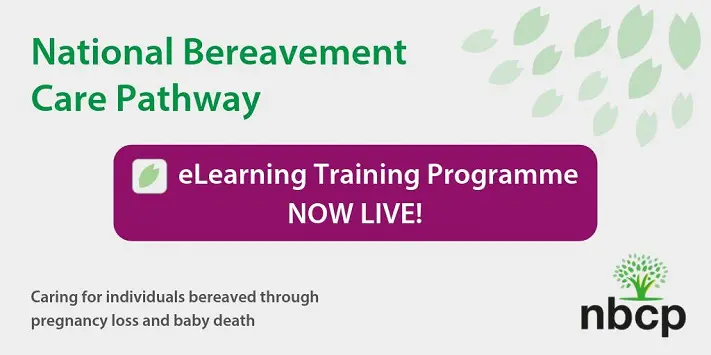iHV launches a series of six new Good Practice Points (GPPs) for health visitors on loss, bereavement and supporting families with grief during National Grief Awareness Week (#NGAW20):
GPP – Supporting families experiencing pregnancy loss or the death of an unborn baby
- This GPP covers miscarriage, ectopic and molar pregnancy, termination of pregnancy for foetal anomaly and multifoetal pregnancy reduction (ToPFA) to align with 2 of the 5 pathways in NBCP. This GPP aims to support informed high quality care once a pregnancy loss has already occurred.
GPP – Supporting families following the death of a baby
- The death of a baby is one of the most traumatic and distressing experiences and will inevitably bring about immense pain and grief. Health visitors are an important source of ongoing care and skilled support for bereaved parents in the weeks, months and years following this most tragic and traumatic of experiences. This GPP considers Stillbirth, Neonatal Loss and Sudden Unexplained Death of an Infant (SUDI).
GPP – Supporting families following the death of an infant or child (aged 1 to 4 years)
- The agony of losing a child of any age is unparalleled. There is no age or point in time that makes it any easier. The death of a child goes against the natural order we expect life to follow. The longing for the child and the feeling of emptiness can last a lifetime. This GPP considers the support families can benefit from when they lose an infant or child and the processes and issues pertinent for families experiencing such loss.
GPP – Supporting young children who have lost a parent
- The Office for National Statistics (ONS) has estimated that 1% of children are likely to experience the death of their mother before they reach their 16th birthday. In England and Wales it is estimated that, each year, 7000 children will lose their mother before they reach 16-years old. Within this GPP, we consider how to support young children who have lost a parent or primary carer.
GPP – Supporting a parent when their partner dies
- Losing a partner is devastating at any time in life, however the complexity and additional losses that are felt when you have young children can be especially difficult to endure. This can include losing the father or mother of your child, coping with your children’s grief and the pressures of parenting alone; and, combined with financial insecurity, this can be overwhelming. Within this GPP, we consider how to support a parent who has lost their partner following suicide or death whilst parenting a baby or young infant.
GPP – Supporting parents whose own parent (or early attachment figure) has died
- Coping with the death of a parent or primary attachment figure is one of the most traumatic and distressing experiences we all face and will inevitably bring about immense pain and grief. Within this GPP, we consider how to support parents who have lost their own parent (or someone with whom they formed their primary attachment relationship with early in life) during the perinatal period and early years as a parent.
Please note that these GPPs are available to iHV members only.
If you’re not a member, please join us to get access to all of our resources.
The iHV is a self-funding charity – we can only be successful in our mission to strengthen health visiting practice if the health visiting profession and its supporters join us on our journey. We rely on our membership to develop new resources for our members.
So do join us now!





